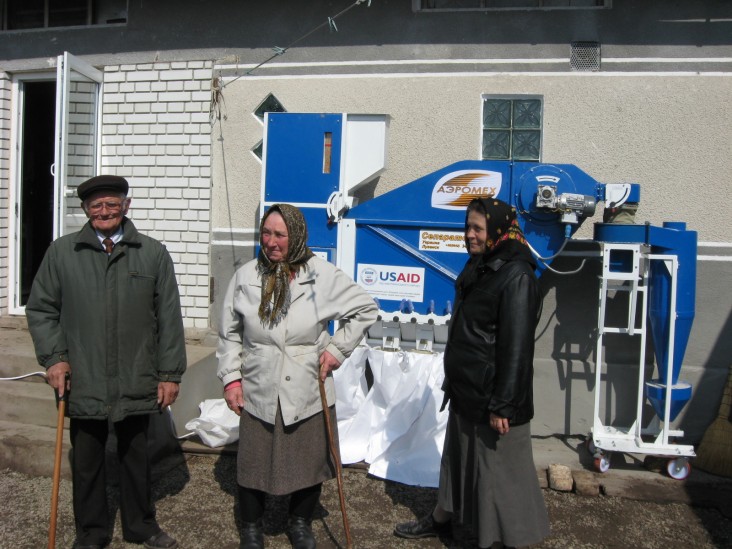
August 2015—In 2014, a very high vegetable and potato yield in the Rohatyn district of Ivano-Frankivsk oblast in Western Ukraine pleased the members of the Lypivsky cooperative. Higher yields, however, revealed the inadequacy of existing storage facilities, which are essential for enabling agricultural sales throughout the year, including during the winter months when prices are highest.
USAID helped producers in Lypivsky to increase their storage capacity. With project support, the cooperative purchased critical post-harvest processing equipment and strengthened partner cooperatives through training sessions on topics such as member services, post-harvest processing, and marketing.
Through its AgroInvest Project, USAID helped the cooperative procure equipment for sorting, cutting and drying produce that now enables producers to dehydrate onions, carrots, red beets and cabbage—the basic ingredients for preparing borsch, a traditional soup and staple of the Ukrainian diet.
“Small farmers in Ukraine learned how to grow quality produce, but without processing, albeit very simple, you cannot sell it for the best price and ensure a decent existence in today's difficult conditions,” said Vasyl Savytsky, the head of Lypivsky.
On December 9, 2014, AgroInvest hosted a seminar in Ivano-Frankivsk where borsch cooked with dried vegetables produced by Lypivsky was presented to participants. The event focused on sharing the experiences of agricultural cooperatives and supporting their production and marketing capabilities. In addition to learning lessons from their peer cooperatives, attendees were able to assess the quality of the dried vegetables, both separately as well as in freshly cooked borsch.
The training and new food processing equipment were by followed by a more than doubling of the Lypivsky cooperative membership, to 280; the creation of five new jobs; and the processing of 200 tons of grain, 320 tons of potatoes, and 23 tons of other vegetables over the marketing period from October 2014 to May 2015.
With USAID’s help, Lypivsky transitioned from selling fresh produce only to also selling processed, value-added products with established marketing channels.
For example, the cooperative established contacts in Lviv to furnish supplies to Ukrainian army units in the east. The troops need fast, nutritious food that will not perish in cross-country shipment or before distribution on the battlefront, and Lypivsky was eager to put its new processing equipment to use. Now, vegetables from Rohatyn are consumed not only in western Ivano-Frankivsk but on the eastern frontlines.
AgroInvest, which runs from 2011 to 2016, provides assistance to Ukraine's agriculture sector to help accelerate the country's economic recovery and increase its contribution to global food security.
LINKS
Follow @USAIDUkraine, on Facebook







Comment
Make a general inquiry or suggest an improvement.